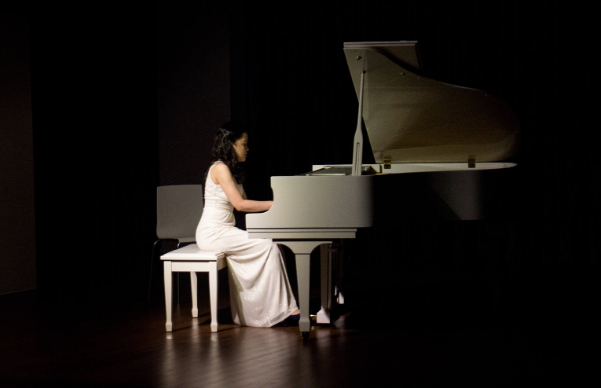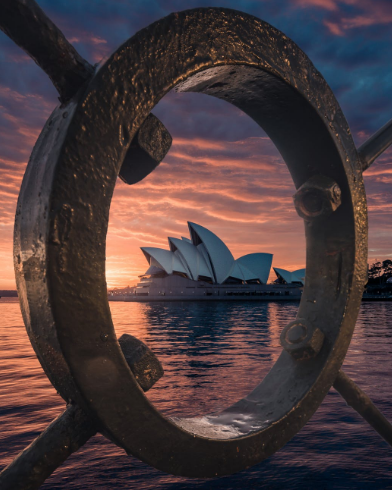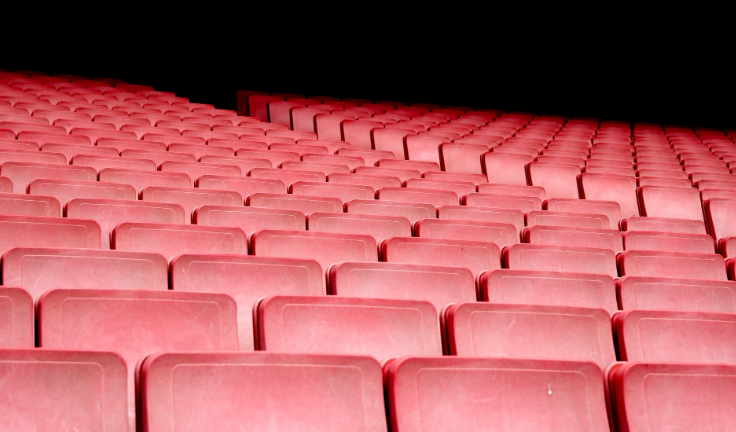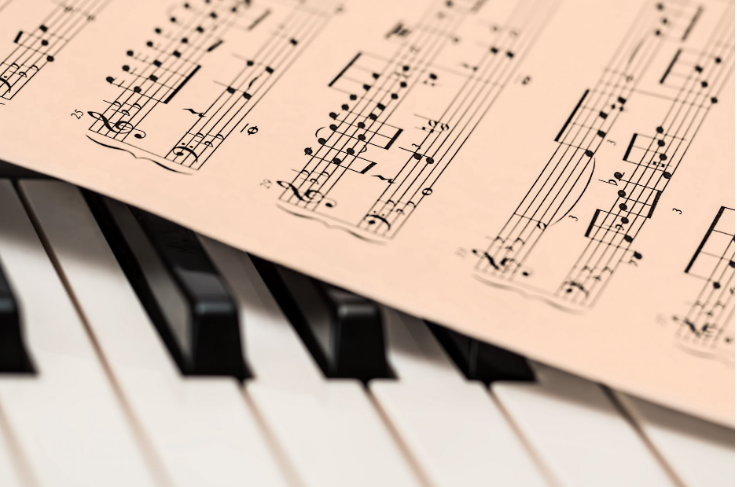February 2020
 With the ghastly muddle that is current politics in the USA in the forefront of attention these days, my thoughts turned recently to a section from Rebecca West’s masterpiece Black Lamb and Grey Falcon, her recounting of world history using the framework of a trip through the former Yugoslavia in the 1930’s. The section that kept being triggered by the news comes from the epilogue. Now, epilogues are usually short summings up of things with a few generalities to cap things off like frosting on a cake. Nothing could be less the case with West’s epilogue. She delves yet further in her summation and lurches headlong into the history and politics of the period between her journey in Yugoslavia and the book’s publication — a span of several years. After analyzing the roots and the trajectory of players in World War II she takes a deep breath and writes the following:
With the ghastly muddle that is current politics in the USA in the forefront of attention these days, my thoughts turned recently to a section from Rebecca West’s masterpiece Black Lamb and Grey Falcon, her recounting of world history using the framework of a trip through the former Yugoslavia in the 1930’s. The section that kept being triggered by the news comes from the epilogue. Now, epilogues are usually short summings up of things with a few generalities to cap things off like frosting on a cake. Nothing could be less the case with West’s epilogue. She delves yet further in her summation and lurches headlong into the history and politics of the period between her journey in Yugoslavia and the book’s publication — a span of several years. After analyzing the roots and the trajectory of players in World War II she takes a deep breath and writes the following:
… If human beings were to continue to be what they are, to act as they have acted in the phases of history covered by this book, then it would be good for all of us to die. But there is hope that man may change, for two factors work on him that might disinfect him. One is art. These days have given us a chance to test the artistic process, and judge whether it is a tool that does honest work or whether it simply makes toys for the childish. Now there is fear to distract us, now there is desolation to put up a counter-argument to any argument. We start a gramophone record, and from it there radiates the small white star of light that is, say, ‘Deh vieni, non tardar,” the song of Susanna as she waits in the garden for the happy night to fall, at the end of The Marriage of Figaro. There bursts across the whole sky above, there bursts across the earth below, the huge red star of light that is a high-explosive bomb. Surely the huge red star will consume the small white star. But it is not so. On the contrary, the huge red star withers at once. The bowels writhe to perceive it, but they immediately unknot, and the attention dismisses it, unless it is accompanied by some fantastic circumstance, a comic spatchcocking of victims against a wall, a Versaillesque ascension of the prodigious waters of a main. But the attention does not relinquish the small white star of the song, which is correct, permanent, important. ‘Yes,’ we say in our beings, heart and mind and muscles fused in listening, ‘this is what matters.’ ‘What matters?’ echoes the astonished reason. ‘Can you say that a bomb which might have blown you to smithereens matters less than a song supposed to be sung by a lady’s maid, who, however, never existed, when waiting for the embraces of a valet who, also, never existed?’ ‘Yes,’ we reply. For those of us who before the war loved pictures, music and good writing find that in these days their delights are intensified. I remember wondering, when I sat in the restaurant on the Frushka Gora and a Mozart symphony poured out through the radio, whether there was anything at all in the lovely promise that seemed to be given by the music, or whether it simply happened that the composer had imitated in a melody the tones of a human voice speaking out of tender and protective love. Now it seems to me that I can only have felt the doubt because I did not then know the ultimate insecurity which comes from a threat not merely to one’s individual existence but to the life of one’s people. I now find it most natural that the Dalmatians, in peril like our own, built churches and palaces, deliberations in stone on the nature of piety and pleasure, under the seaward slopes of hills that were heavy on their crests with Turkish fortresses, and desolate to landward with the ruins of annihilated Bosnia. I find it most natural that the Macedonian peasants should embroider their dresses, that they should dance and sing. For, of course, art gives us hope that history may change its spots and man become honourable.

When I first read these sentences over fifteen years ago my eyebrows raised in astonishment and doubt. They seemed to me too facile an opinion, doubly suspect coming from a writer with works of fiction to her name. They seemed, if the bald truth be told, an aesthetic grasping at straws. Other people of similar experience came to very different conclusions. Take for example Theodor Adorno, chased out of his native Germany by the Nazis, who in his book Cultural Criticism and Society (1949) gave the opinion, “To write poetry after Auschwitz is barbaric.” While the statement is hyperbolic as Adorno often is to make his point, it holds a comprehensible truth. But could the same not have been said after the ravages of the Mongol hordes? They, too, left thousands of corpses in their wake. How would a Mozart aria have fared against a visit by Genghis Khan?
And what are we to make of art being itself pressed into the service of barbarism? I’m thinking of an instance that West could have considered from her own time: Terezín, aka Theresienstadt, the Nazi concentration camp staged as a Potemkin village of the arts (info here). I own a recording of music by Czech composers interned at Terezín — Gideon Klein, Viktor Ullman, Hans Krása and Pavel Haas. All four men were sent to Auschwitz and gassed. So much for the power of art to forestall or transform humanity’s murderous impulses.
Dealing with historical processes in relation to aesthetic theories is a fraught business at the best of times. When it comes to an attempt to harmonize the role of aesthetics in human life with the evidence of human historical processes, the only recourse is some sort of generalization from a personal perspective. Any conclusion reached will necessarily say as much about the person giving the opinion as it does about the elements under consideration. Mozart goes toe-to-toe with the London Blitz, Auschwitz goes toe-to-toe with Heine. Where they ultimately end up is impossible to pinpoint on a map.
In the years since first reading West’s opinion I’ve considered it many times over — in part, I will own, because West was a good deal more clever than I am so it behooves me to consider her points of view very carefully before rejecting them. I really never got past the lapidary statement of doom she drops in the first sentence of the quotation above — I could easily have written that line myself. After reading world history in years past in considerable quantity I found myself succumbing to despair at the inability of humankind to lift itself above the self-destructive cycles it repeats over and over again. West herself comments in Black Lamb and Grey Falcon on that dismal recurrence. Since the publication of West’s book in 1941 what evidence has humanity presented to the analytical eye? More of the same, always more of the same. Art offers solace but has yet to work any transformative magic on the human collective.

It’s difficult these days not to feel that we are somehow in End Times again — just as West and the inhabitants of Europe must have felt in the 1930’s in the run-up to World War II. They could all see the clouds massing on the horizon and knew the storm could bring the end of the world as they knew it. Millions of people died, hundred of millions of lives were disfigured — some permanently — but art, too, survived, just as humanity did. Art obviously has something fundamental to do with human beingness, that much cannot be gainsaid. But can it operate as the savior of a humanity obdurately unwilling to give over its recurrent cycles of self-destruction?
That’s the million dollar question. I’m glad for West that she found the answer to it to be in the affirmative. Optimism is always preferable, if for no other reason than the boost it gives the spirits. Despair is so erosive one shouldn’t give it quarter except under the pressure of a complete lack of alternatives. I wonder now, in the year of our Lord 2020, what West would think if she looked about our world and considered it on the basis of her memories of World War II. She died on the ides of March in 1983, nearly 40 years in the past, and the world has changed enormously in the meantime.
I wonder what her opinion would be today given the monstrous challenges we face. The outbreak of political unrest — or insanity — is nothing new and West was a studied hand at the dissection and analysis of such things. After all, some years following the publication of Black Lamb and Grey Falcon she was given the assignment of writing a report on the Nuremberg Trials, which appeared in her book A Train of Powder. She inspected at close range many things that would daunt most of us and leave us only too anxious to avert our attention. West was indefatigable in her willingness to face the truth of any situation. Recent events — particularly with regard to climate change — show that trait to be wholly absent from the human collective.
West might well in her inimitable fashion make mincemeat of Boris Johnson and Brexit — I can see the stiletto of her irony sliding its way into the darkest recesses of Downing Street — but what, one wonders, would she do with climate change, something which remains beyond the reach of both irony and wit? What would her thoughts be on seeing the stumblings of American democracy? On the rise of authoritarian regimes in Russia, Hungary and Poland (not to mention Venezuela and Brazil)? On the steady forward march of income polarization that makes the 21st century more similar to the 19th with regard to rich and poor than was West’s own century? These are but a few examples. The list could easily become much, much longer until the phrase ad nauseam becomes the fittest way to end it.
The truth of the matter is that the anxieties of the 1930’s, despite their very real gravity, were different from ours today. West’s aesthetic optimism strikes a hollow note when tapped against the nature and extent of the disasters we face. Mozart arias will not reduce carbon dioxide emissions. Symphonies will not stop humanity from revolving around its pivot point of authoritarianism, which is apparently so baked into our primate brains that we can never see it for the horror it is and be done with it. With regard to human-induced climate change humanity has proven itself wholly incapable of managing its affairs with even a small fraction of the ecological intelligence and competence the Planet possesses.
All the evidence suggests that art will not make humanity change its spots, as West opines. Of the word “honourable” we need not even speak. At the collective level where West places art’s redemptive influence it fails miserably to sway the course of human events. One might offer the comment that precious few of the several billion people on Planet even know who Mozart is, let alone offer themselves up to the transformative power of his music. In the final accounting the idea of art as savior of humanity will not wash. On humanity’s showing in the historical record West’s first assessment is the valid one: it would indeed be good for all of us to die, since apparently nothing else will stop us from destroying the biosphere along with ourselves and most other living things.

Had West thought more deeply about the effect of art on human life she might perhaps have come to the conclusion that it’s always created by individuals and primarily affects individuals rather than the human collective. At the level of the individual West’s assessment of art’s civilizing and redemptive power makes all the sense in the world. I can attest to its validity personally for myself as an individual. Art — music, literature, painting, architecture, any manifestation of the basic article you care to name — has been perhaps the singlemost important presence in my life apart from the Planet itself. It has made an enormous difference in my life experience, has influenced me in countless ways and without a shadow of doubt has improved both my beingness and its expression in the world. That said, I can’t for the life of me see that it has had any power to push back against the demographic, economic and political devolution of the human collective I’ve witnessed with mounting alarm over the course of my lifetime. Art didn’t stop humans from having too many babies, burning too many fossil fuels or failing to make sure that all the humans on Planet have enough to eat. Art still does not count as a civilizational bottom line, it’s considered an expendable luxury. It is itself extremely fraught with the bugbears of class and hierarchy that render miserable all other domains of human life.

I understand much more clearly now why my initial reaction to West’s opinion was negative. In my experience art has very little to do with the external world. It has its reality in the inner dimensions of experience. The experience it gives is direct, to be sure, but is wholly intimate and sometimes very difficult to communicate to anybody else. It is also entirely individual. The effect of a Mozart aria, for example, depends on the listener as much as on the nature of the music itself. The effect will be different ten times if ten listeners are involved. With that being the case, how can we say that art has some unitary effect at the level of the human collective?
For me art — particularly music — has to do with some domain of beingness outside the registers of daily existence. It is soul, to put it in oversimplistic terms, rather than body. It lies in the domain of the intangible like thought and emotion. Its effects are non-discursive, often non-linguistic, which means that any attempt to encapsulate them in words is a challenge that stymies most people well before they reach the foothills, to say nothing of planting a flag on the summit of the task.
For me the mechanics of art’s effects mirror processes and qualities usually associated with spirituality. In saying that I see why in the Romantic period (early 19th century) aesthetics took on the vocabulary of the sacred. A perfect example of that development appears in the book Herzensergießungen eines kunstliebenden Klosterbruders (=Heartfelt Outpourings of an Art-loving Monk) by Friedrich Wilhelm Wackenroder and Ludwig Tieck, published in 1796. The basic premise of the book is that there are two primary vehicles to the divine: Nature and Art. Nature exalts us to contemplate the divine but Art enables us to find the divine within ourselves. That notion will not be unfamiliar to practitioners of any number of religious traditions around the world.
West writes of “a chance to test the artistic process, and judge whether it is a tool that does honest work or whether it simply makes toys for the childish.” For my part there’s no doubt that at the level of the individual the artistic process can and does perform yeoman’s work. My life would be much the poorer without it. A backward glance over the experience of my adult lifetime shows me straighaway that art has been second only to Nature in significance. I could justifiably say that art and Nature have been equals, but in fact that’s comparing apples and oranges because Nature is both soul and body just as we are. Nature is our own body writ large, without which we cannot live. The substance of art is often incidental to its internal reality — unless you’re the one who has to tune the piano LOL.
It’s not often I find myself at variance with Ms. West but in this case I’ll smile a kindly, indulgent smile and let her opinion be her own. How I wish she were right. It would be a comfort greater than any currently to hand to have some tool in the human arsenal that promises to turn humankind away from its path of self-destruction. But no, the human collective insists on having its Götterdämmerung, going about it in as protracted and tasteless a fashion as Herr Wagner himself. So be it. I take supreme comfort in the fact that the redemptive work of art in my life stands free and clear of anything humanity may do to impede it. With that individual benefit secured, I’ll carry on as I’ve always done and leave humanity to see to itself.
I have better things to do with my life than self-destruct, thank you very much. Mozart, anyone? 🙂

